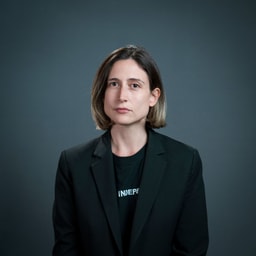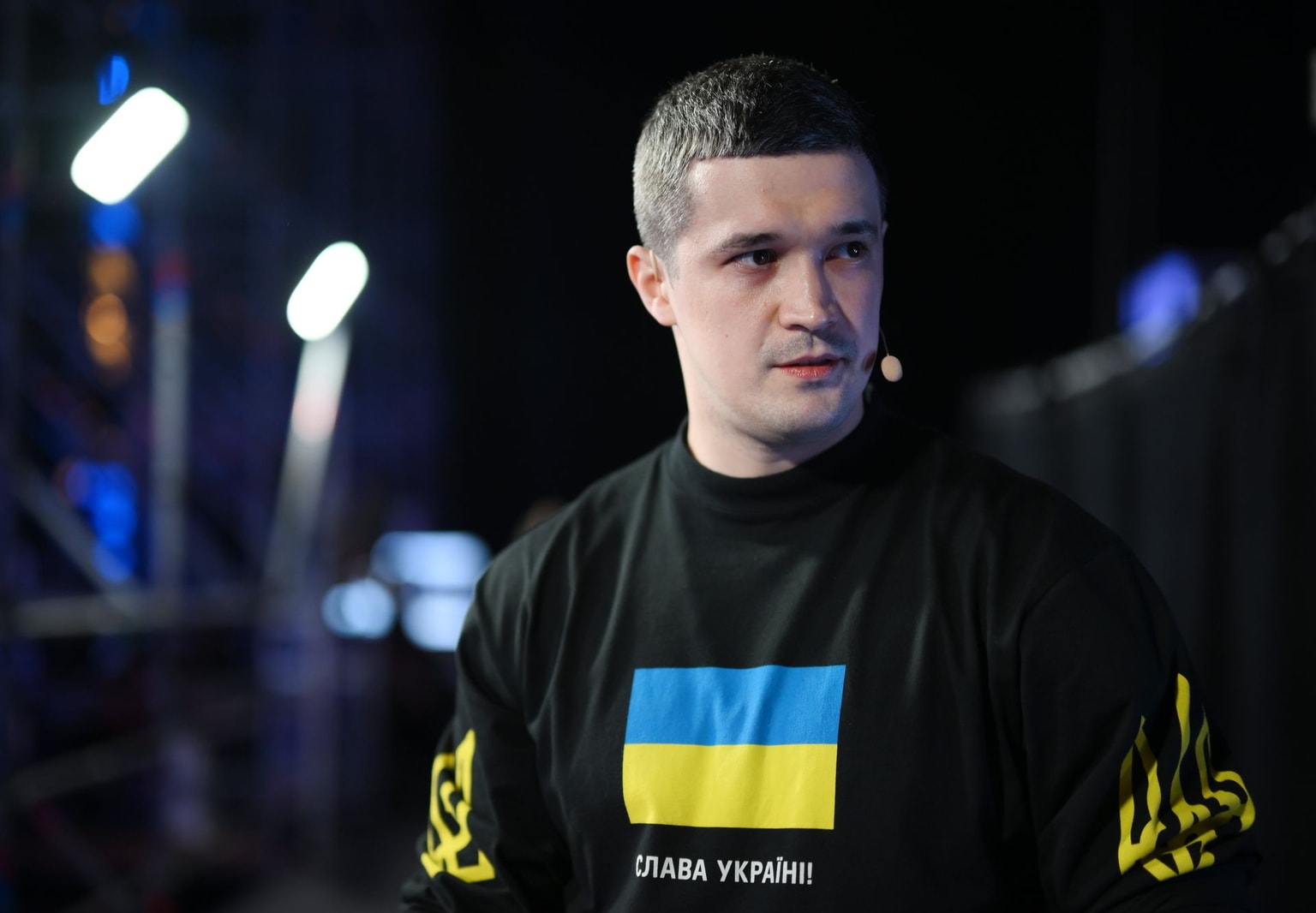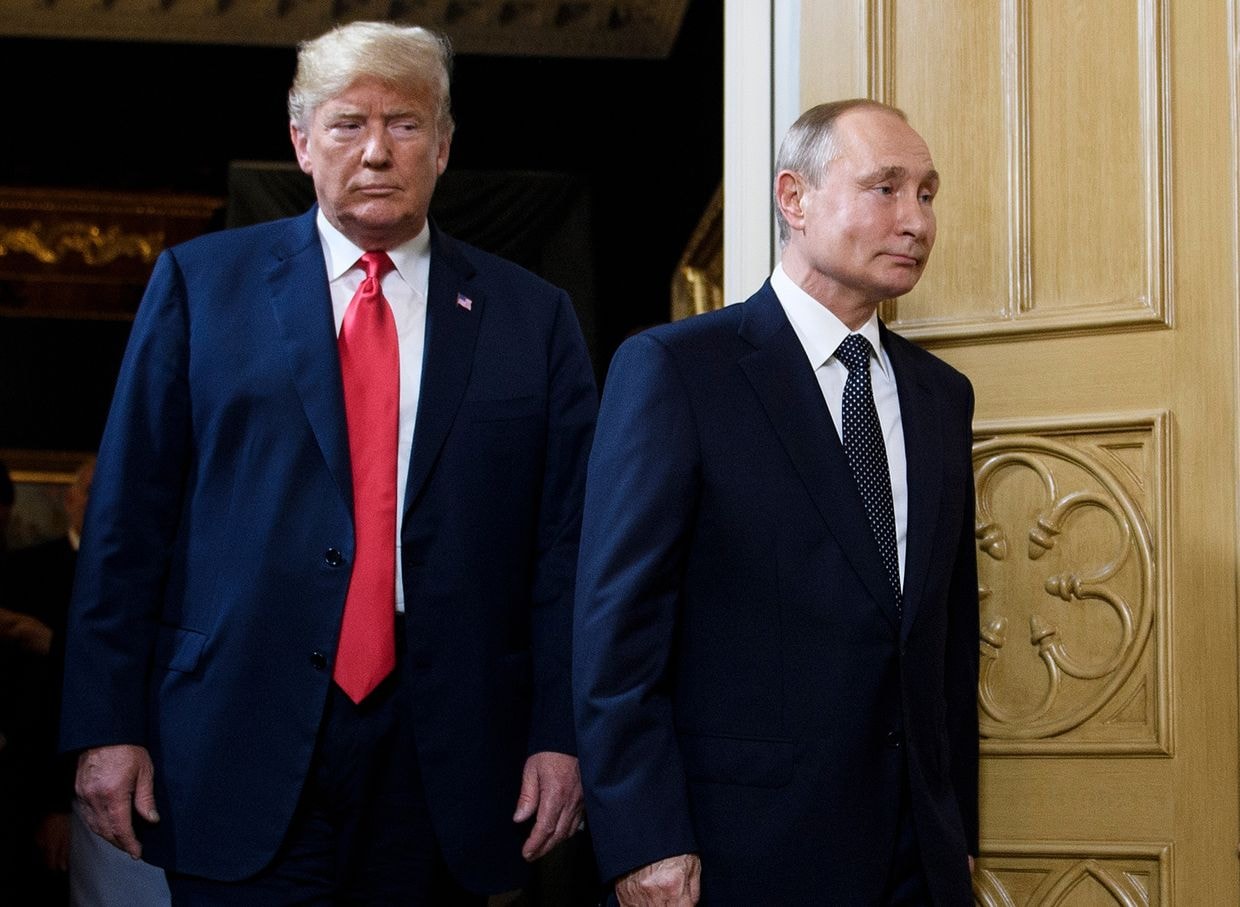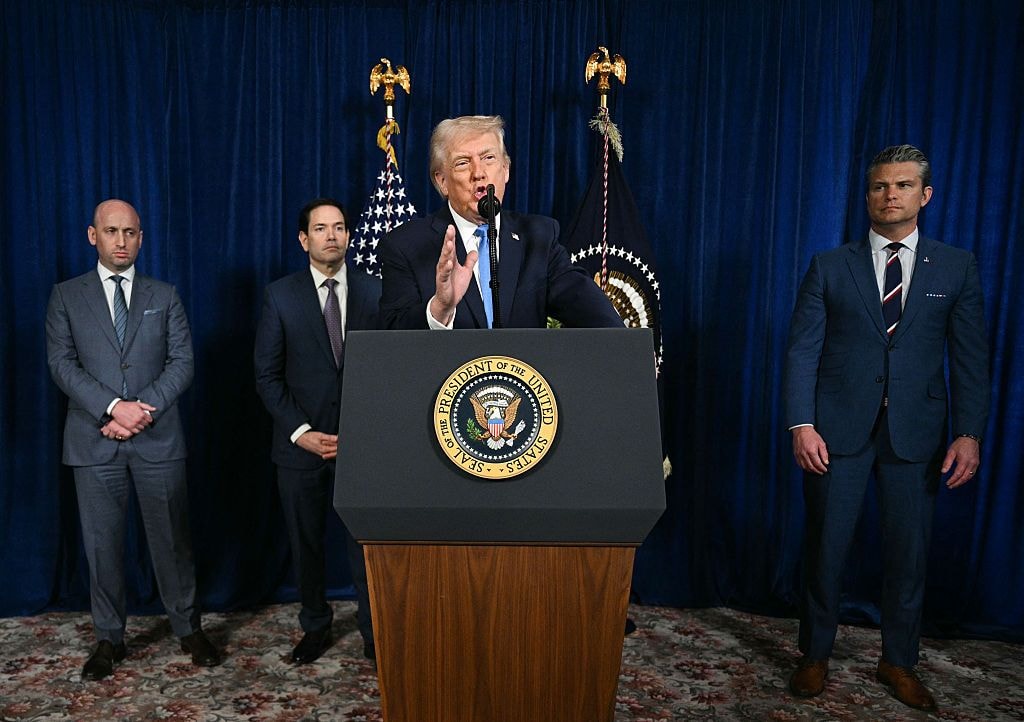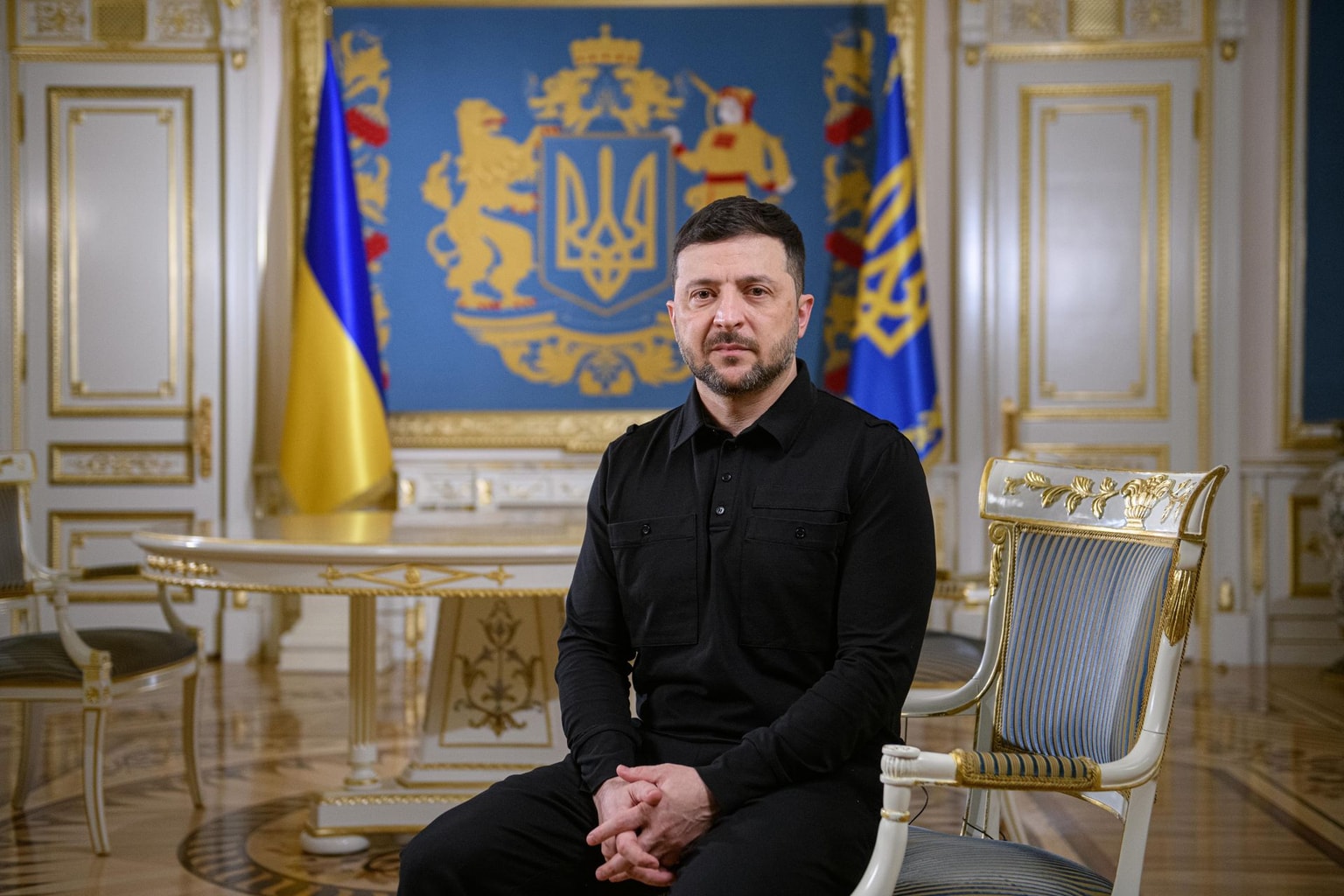Ukraine Business Roundup — Why Russia still makes billions transporting gas through Ukraine

The following is the Sept. 17, 2024 edition of our Ukraine Business Roundup weekly newsletter. To get the biggest news in business and tech from Ukraine directly in your inbox, subscribe here.
Ukraine passes latest IMF review
Ukraine passed its latest loan program staff review with the International Monetary Fund (IMF), paving the way for a $1.1 billion tranche of funding for Kyiv as it continues to fight off Russia.
This fifth review — part of the fund’s $15.6 billion loan program for Ukraine — was finalized late on Sept. 11. Kyiv will receive the funds after board approval, which is mostly a formality after a successful review. The IMF said approval would be discussed in “the coming weeks.”
Why is this so important? The Ukrainian government has to use all of its revenue for the military, relying heavily on foreign financial assistance to keep the government and economy afloat. As Russia continues to target energy and other critical infrastructure, external financing is key to keeping the lights on.
"Program performance remains strong. (Ukraine’s) authorities met all end-June quantitative performance criteria (QPCs) and the structural benchmark for the review," the IMF said. For more on how IMF loan programs work, check out our explainer here.
The fund said that while it expects growth to be 3% this year, the economy will slow in the second half “due to repeated Russian attacks on the country's energy infrastructure and the impact of the war on labor markets and confidence.”
It also warned that risks both to Ukraine’s economic outlook and to the country overall “remain exceptionally high,” adding that Kyiv must “respect financing constraints and debt sustainability objectives" in the 2025 budget.
Ukraine defense tech attracts funding
Ukrainian-born defense tech startup Swarmer which develops coordinated drone swarming solutions attracted $2.7 million in a seed funding round led by R-G.AI, with participation from Radius Capital Ventures, D3 Venture Capital Firm, and Green Flag Ventures.
“This funding enables Swarmer to scale the adoption of its swarm-native solutions, with the goal of transforming battlefield operations in democratic nations,” Justin Zeefe, founding partner of Green Flag Ventures, a VC fund that invests in early-stage Ukrainian startups, wrote on LinkedIn.
Green Flag Ventures also recently announced investments in Ukrainian defense tech startup Himera, which develops inexpensive encrypted walkie-talkies, and Karadag, whose technology helps detect, track, jam, and neutralize drones. The amount of the two investments is undisclosed.

Kolomoisky’s continued downfall
Cyprus stripped eight “Golden passport” holders, including infamous Ukrainian oligarch Ihor Kolomoisky, of their citizenship in the country for withholding vital information from authorities, Philenews reported.
Kolomoisky failed to report in his application that he had faced criminal charges for tax evasion in Russia in 2008, Philenews said. He received Cypriot citizenship in 2010.
Who cares? The episode is just the latest in the oligarch’s fall from the top, part of what many hope is a larger trend in Ukraine that is finally wrangling power out of the hands of a small group of wealthy and powerful individuals.
Since September, Kolomoisky has been sitting in a Kyiv pre-trial detention center facing charges of fraud, money laundering, and even ordering an assassination. He was also rumored to have been stripped of his Ukrainian citizenship by President Volodymyr Zelensky himself, leaving him only with an Israeli passport — as far as the public knows.
The government in Cyprus made the call on Kolomoisky specifically after determining his “Golden Passport” — citizenship obtained by wealthy individuals through hefty investments — was secured under false pretenses, and by withholding information on criminal charges he’s facing.
Cyprus also said that the country had determined that Kolomoisky’s “suspicious character” risked worsening the country’s reputation, Philenews wrote.
“Suspicious” is an understatement. Kolomoisky, who, if you’re new here, is one of the country’s most notorious oligarchs and still to this day one of Ukraine’s wealthiest individuals. He lost his most precious asset, PrivatBank, to nationalization in 2015 after the government discovered he and his cronies were using it as their personal piggy bank and to the tune of $5 billion, no less.

Tax bill passes parliament in first reading
Ukraine’s parliament passed a law in its first reading on increasing taxes in an effort to raise more money for the budget as Russia’s war continues to wreak havoc on the country’s economy. Many people here in Ukraine are quite unhappy about it.
The bill would increase the military tax from 1.5% to 5%, set higher taxes for self-employed people, impose a 50% tax on bank profits in 2024, and 25% tax on the profits of other financial institutions.
The tax hike hopes to raise Hr 58 billion ($1.4 billion) in 2024 and Hr 137 billion ($3.3 billion) in 2025 for the budget.
Prime Minister Denys Shmyhal said in August that Ukraine faces a budget deficit of $35 billion next year, though foreign partners have pledged to cover roughly $20 billion of that sum.
How is the country reacting? Despite the dire budgetary situation, the bill has received criticism. Businesses and economists have expressed concern the law targets tax-paying citizens without going after illegal activity that goes untaxed, causing losses to the state.
Meanwhile, parliament also passed a law in the first reading on customs reforms, a welcome move for many as the sector is rife with corruption.
I’ll be watching how the bills move through parliament. Stay tuned for more.

Why Russia still rakes in cash transporting gas through Ukraine
There’s an ironic fact about Russia’s war — natural gas continues to flow through Ukraine from Russia, with both sides profiting from the deal and, in turn, financing each other's war efforts.
Russia has been paying Ukraine transport fees to carry its gas through thousands of kilometers of underground Ukrainian pipelines as part of a 2019 agreement between the two countries. The Kremlin then rakes in billions of dollars of profits selling the gas to European partners.
That’s all expected to change this year when the deal expires. Ukraine has given its partners time to find alternative sources and has signaled its open to a deal that would transit Azeri gas through the existing network.
Read about the deal in our latest explainer: Why Russia still rakes in cash transporting gas through Ukraine: 4 key charts.
What else is happening
Germany pledges over $110 million in winter aid for Ukraine
Russia is once again planning a "winter war with the aim of making the lives of people in Ukraine as terrible as possible," German Foreign Minister Annalena Baerbock said before a ministerial conference in Chisinau while announcing the new aid. Prime Minister Denys Shmyhal has said that while 85% of the country’s energy infrastructure is protected against Russian attacks, the severity of blackouts is impossible to predict if Russia intensifies its attacks and manages to break through air defenses.
EU preparing to raise up to 40 billion euros in loans for Ukraine without US, FT reports
The EU is preparing plans to gather up to 40 billion euros ($44.5 billion) in loans for Ukraine as Budapest keeps disrupting plans on a joint loan with the U.S., the Financial Times reported on Sept. 16, citing sources and a draft proposal. The proposal aims to raise between 20-40 million euros, with the final figure to be set after consultations with member states, and would only require a majority vote, circumventing Hungary’s veto.
DTEK to invest 140 million euros in energy storage systems to strengthen Ukraine’s energy security
Ukraine’s largest private energy company, DTEK, said in a press release that the energy storage systems will have a capacity of 200 megawatts and will help the country accelerate decentralizing its energy system. Battery storage is key in moving away from a system dominated by a few power stations — easy targets for Russian attacks — to one with thousands of energy sources.
Metinvest to start building new plant in Italy by start of 2025
CEO of Metinvest — Ukraine’s largest steel company — Yuriy Ryzhenkov told Forbes Ukraine in an interview that the new plant in the Italian city of Piombino should be producing steel by the end of 2027. The plant will cost 2.5 billion euros to build and will have a capacity of 2.7 million tons of steel per year, according to Ryzhenkov.
Ukrainian restaurant in Chicago gets Michelin recommendation
The Michelin Guide Chicago September 2024 added Ukrainian restaurant Anelya to its list of must-visit restaurants in the city, the first time a Ukrainian restaurant has made it onto a Michelin list. “Anelya delivers with standout dishes like green borsch with dill, stuffed cabbage, and a zakusky cart loaded with small bites like sunflower seed hummus, all in a charming atmosphere,” Michelin wrote.
